*On Fieldwork and Engaging Communities in Polynesia
By Carmen Tomfohrde
My PhD travel has been progressively escalating in intensity, “leveling up” like a video game since my first trip to London for archival research. Most recently, I spent more than seven weeks in French Polynesia, where I assisted museum development for “Te Ana Peua” (The Open Cave), the museum in Vaitahu, Tahuata, Marquesas. Tahuata has no airport, hotels, restaurants, bank, or hospital, and I had no telephone or hot showers on the island.
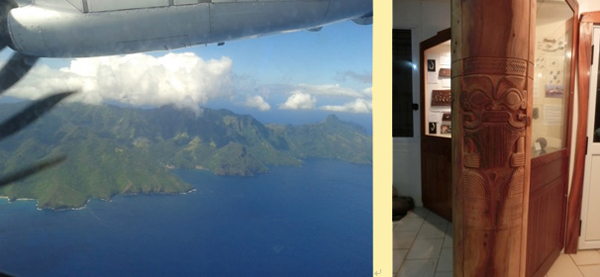
Left: Tahuata seen from the air on a flight between Tahiti and Hiva Oa.
Right: Museum exhibits and a new “tiki” museum carving by Fati Fii in Te Ana Peua.
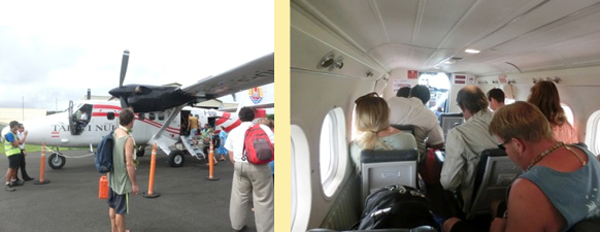
Before boarding this plane between the islands of Hiva Oa and Nuku Hiva, Marquesas, we were asked to stand on the airport scale with our carry-on luggage. Seats were then assigned with weight distribution in mind.
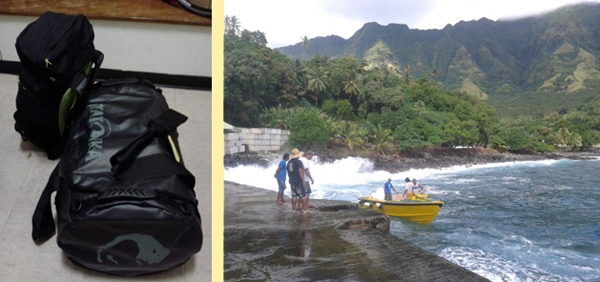
Left: Everything packed and waterproofed in soft bags, to be tossed ashore at Tahuata on arrival.
Right: The boat that brought us to Tahuata, delivering new museum cabinets.
My first Polynesian research trip had the initial effect of making me feel utterly incompetent and unqualified to write a PhD dissertation on Polynesian culture and history. I staggered upon entering libraries and archives in Hawaii, overwhelmed by the volume and quality of their holdings. When I returned home after multiple consecutive grueling 13-hour research days punctuated by microwaved hot dogs from Walmart, I met dreamy-eyed friends who persisted in imagining I’d just returned from the scripted encounters with white sand beaches that the tourist industry sells.
“Pick your battles,” a saying goes. This belies a false sense of control over our circumstances. Sometimes our battles choose us. But I dare not complain; the missionaries I study landed on Polynesian islands that practiced cannibalism and human sacrifice, and they endured outbreaks of war and famine. My hardships were comparatively less intense.
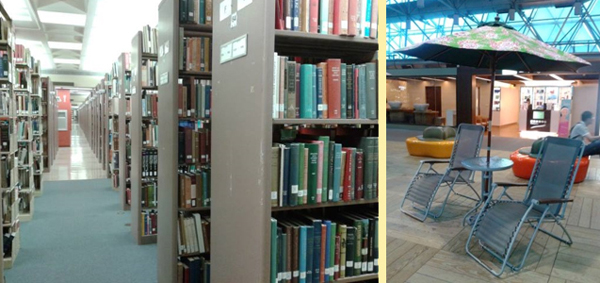
Left: I need another 20 years in these University of Hawaii stacks to properly finish what I’ve started.
Right: A long layover in Taiwan on my return, where I finally found what most people seek in Hawaii.
The University of Hong Kong’s new vision for internationalism, innovation, interdisciplinarity, and impact? I saw these terms and thought, “Yes! That is exactly what I am doing already.” It is difficult to concisely summarize those intangibles I learned through the kinetic, hands-on application of my research in locations where the stakes are high, the implications are immense, the issues are hotly contested, and the locals are familiar with the extensive repositories of documents I came to view and discuss.
However, I think the consequences of not going – and consequently misrepresenting Polynesia, its cultures, histories, and people – would be serious. It would be an offense to the people of Polynesia to never set foot in the places my research describes, and I wish time and finances would have allowed me to stay longer.
The first two years of my PhD had already taken me to some of the worlds’ most elite universities, but academic prestige matters little in places that hardly have internet access. Without physically showing up in Polynesia and discussing the issues I research with Polynesians, my academic conference presentations about Polynesian culture and history could never reach many of those most qualified to assess their accuracy and relevance.
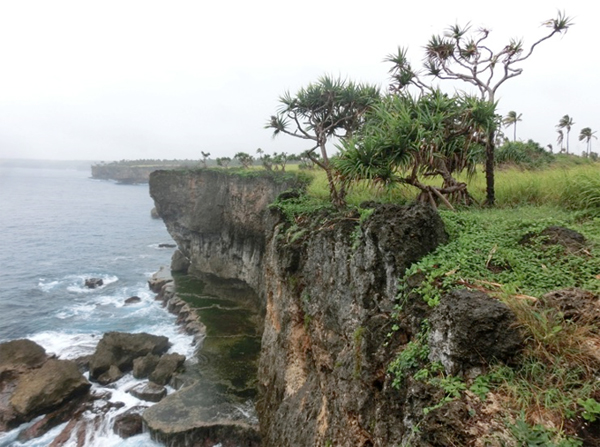
During an outbreak of war in 1799, missionaries hid somewhere along this rocky coast on the south side of Tongatapu, Tonga. Three missionaries were killed in the war.
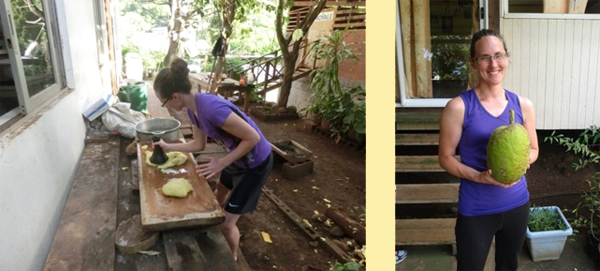
Left: Learning how to pound baked breadfruit into ko’ehi.
Right: The famous Polynesian breadfruit.
As I enter the final year of my PhD, I want to keep going! I feel like I’ve just begun. I still have much to learn and, I dare hope, also much to contribute.

Our apologies, you must be logged in to post a comment.